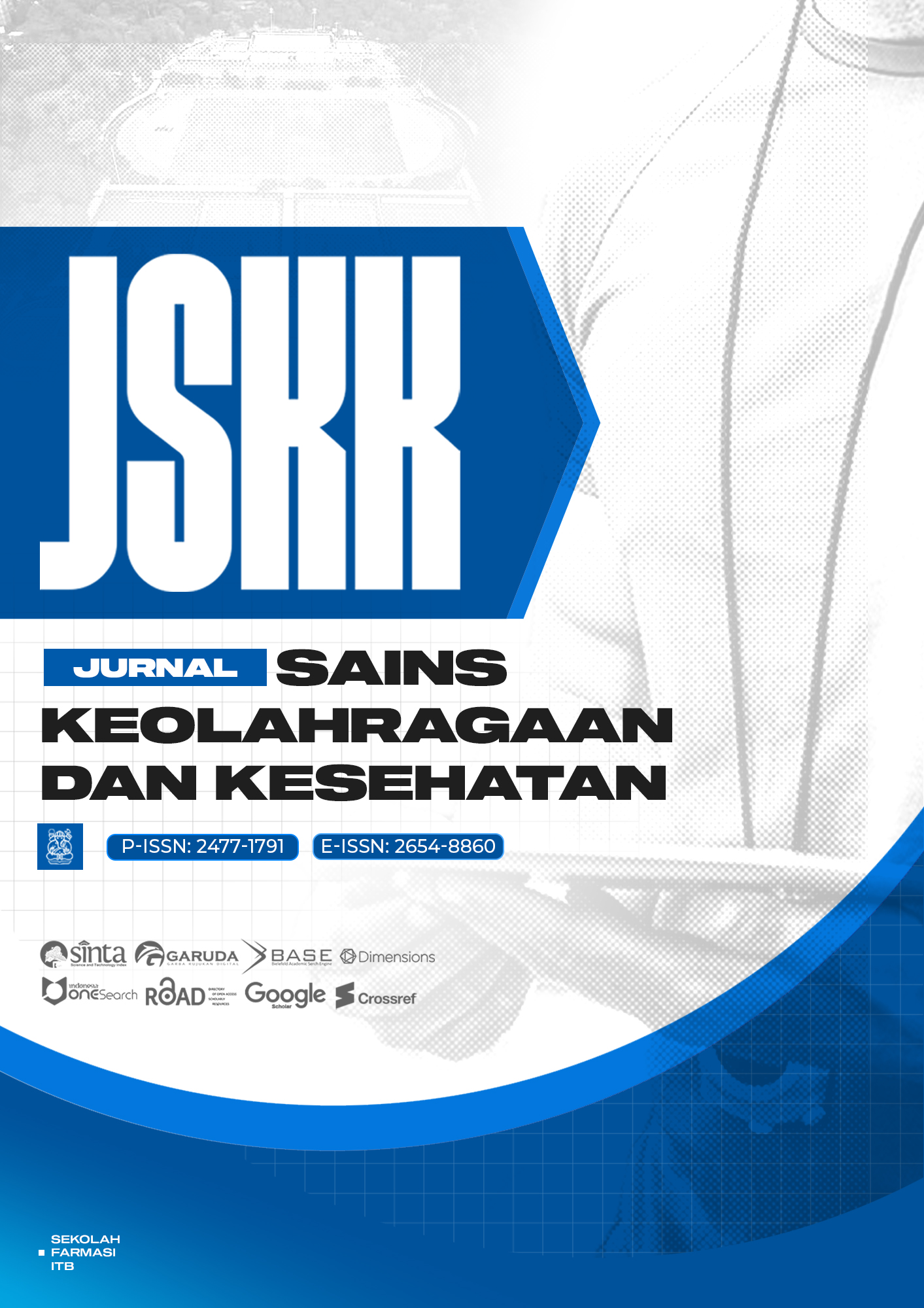Does Achievement Motivation Cause Rowers to Burnout?
DOI:
https://doi.org/10.5614/jskk.2025.10.1.5Abstract
In rowing, athletes face high pressure due to intensive training, intense competition, and expectations from coaches and the environment. Achievement motivation is a significant factor in achieving optimal performance, but excessive pressure can increase the risk of burnout. In the field, many athletes experience physical and emotional exhaustion due to the drive to achieve without good stress management. This study aims to understand the role of achievement motivation, which is generally considered positive but also has the potential to trigger burnout. The method used is quantitative descriptive with an ex-post facto approach, involving active rowing athletes in Bandung City. The research instrument was a closed questionnaire with a scale of achievement motivation and burnout. The results of the study showed a significant relationship between the two. The higher the motivation to celebrate, the lower the risk of burnout, while low motivation increases the risk. In conclusion, a balanced approach is needed in building athlete motivation, by considering psychological factors and training load management. Coaches and support teams are advised to implement burnout prevention strategies, such as optimal recovery programs, psychological assistance, and creating a training environment that supports the mental well-being of athletes.
Downloads
Published
How to Cite
Issue
Section
License
Copyright (c) 2025 Salma Putri Bakti, Komarudin Komarudin, Mochamad Yamin Saputra, Geraldi Novian

This work is licensed under a Creative Commons Attribution-ShareAlike 4.0 International License.
This is an open-access article distributed under the terms of the Creative Commons Attribution-ShareAlike 4.0 International License which permits unrestricted use, distribution, and reproduction in any medium. Copyrights of all materials published in JSKK: Jurnal Sains Keolahragaan dan Kesehatan are freely available without charge to users or / institution. Users are allowed to read, download, copy, distribute, search, or link to full-text articles in this journal without asking by giving appropriate credit, provide a link to the license, and indicate if changes were made. All of the remix, transform, or build upon the material must distribute the contributions under the same license as the original.











